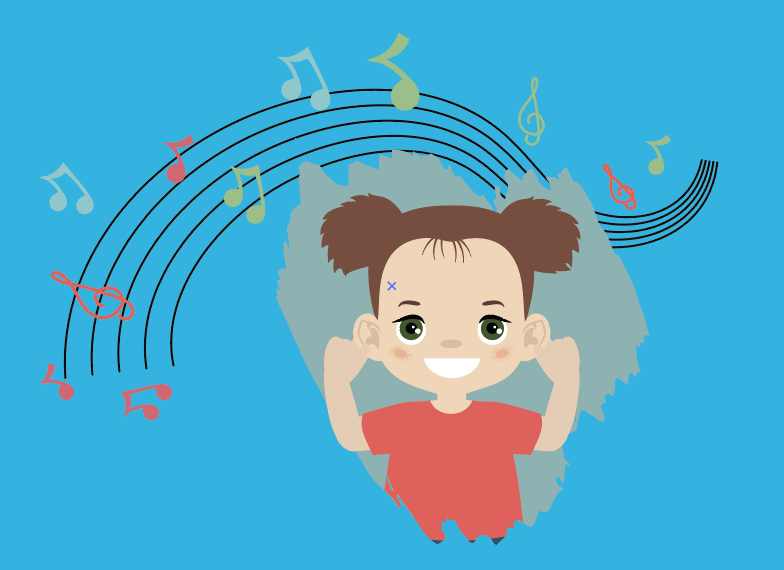The auditory system is how we process and understand the sounds within our environment.
Auditory processing can be broken into 3 auditory skills: auditory awareness, auditory discrimination, and auditory identification. Auditory awareness is the ability to detect sounds. Auditory discrimination has various subsections, but in this case, it is referring to the ability to detect differences in sounds within an environment. Lastly, auditory identification is to attach meaning to sound and speech. All these skills work together to successfully process the meaning of the sounds around us.
What is Auditory Defensiveness?
Auditory defensiveness is when a child has sensitivity to sound. Imagine you are in a coffee shop trying to study. Many people are capable of tuning out sounds within our environment and focusing on our own task at hand. For a child with auditory defensiveness, not only will they hear all the sounds we are capable of tuning out, but they will also hear the quieter sounds many of us don’t hear at all. These noises begin growing louder and louder. The child is unable to tune out irrelevant sounds, and instead feels overwhelmed by them, and feels as though they need to defend themselves against them.
When the defensive and discrimination aspects of the auditory system work together an individual can compartmentalize what they are hearing, where it is coming from, and appropriately respond to the auditory input. However, when things don’t work together, then a child may have difficulty with auditory processing.
Signs of a child having difficulty with the auditory system:
- Over Responding or avoiding auditory input
- Reacts quickly and negatively to loud sounds
- Covers ears
- Screams
- Yells
- Easily distracted by noise within the environment
- Under Responding to auditory input
- Appear to be unaware of sounds others respond to
- Don’t respond to their name
- Say “what” a lot
- Difficulty locating sound
- May need frequent reminders of directions
- Seeking auditory input
- Enjoy loud/noisy environments
- Produce their own loud sounds frequently
- Enjoy others making sound
- Turn up volume on tv/music
- Constantly use a loud voice even when inside
How to help:
- For child who overresponds to auditory input:
- Carpet floor or rugs
- Play calming music, such as Mozart
- Give child notice before school bell goes off or alarm goes off
- Headphones or earmuffs
- For child who under responds to auditory input:
- Try pairing auditory input with visual information
- Slow down speech when giving directions
- Seat child away from hallways, windows, doors, etc.
- For child seeking auditory input:
- Musical instruments
- Listen to books on tape/ music
- Sensory diet




